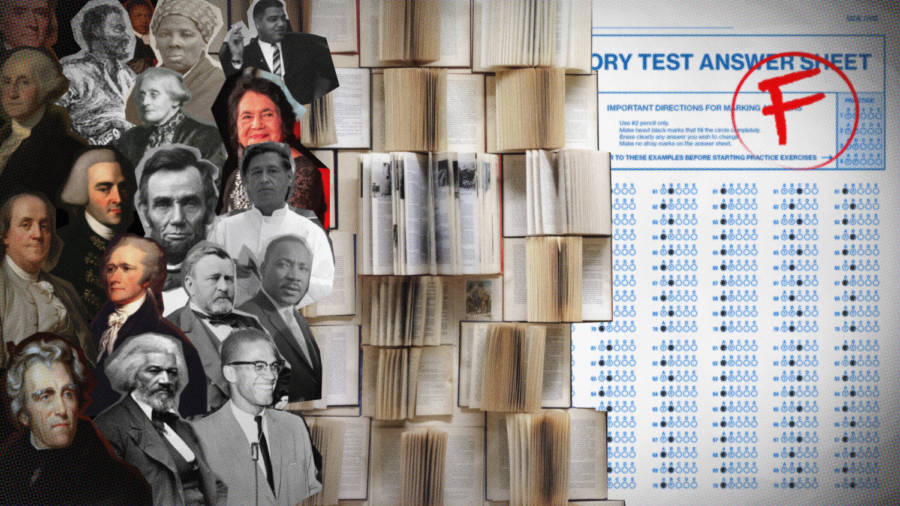Recent statistics have shown that eighth graders are scoring lower than ever in the U.S. History and civics state exams.
According to the National Assessment of Educational Progress (NAEP), 40% of students scored below the basic level of knowledge in U.S. history this year. However, student scores in 2018 were at 34% below the basic level and only 13% of students scored proficient.
This decline wasn’t just noticed in history courses but in reading and math skills as well.
According to an article published by EdSource “2022 scores released last fall in math and reading plummeted in fourth and eighth grade nationally and, to a lesser extent, in California.”
Low comprehension skills seem to be the main cause of the lowering test scores besides the effects of COVID and online learning.
An NAEP board member, Eric Hanushek, explained that it starts way before middle school.
An article from EdSource headlined ‘Latest national test results underscore declining knowledge of U.S. history and civics’ said that “Schools must focus on literacy from the earliest grades and sustain reading and background knowledge through middle school and beyond,”
The EdSource article stressed that it is crucial that students are able to build a strong foundation in learning and comprehension skills from the very beginning of their education so that they can easily apprehend information in future classes.
Another possible contribution to the declining test scores is the pressure on elementary schools to gravitate their instruction more towards reading and mathematics rather than science and social studies.
A member of NAEP’s governing board, Martin West, explained that schools should instead recognize that a strong background in areas like civics and history are also critical for students’ success as readers.
It is reported that history and civic teachers are steering clear from vigorous topics due to the many debates on instruction.
These history courses go beyond just naming all the positions in the executive branch. Hanushek explained that a low score on the U.S. history test should be unsettling because this means students cannot talk about the U.S’s government logically.
This is highly concerning for high schools considering that eighth graders advance to high school and history isn’t taken till tenth grade so whatever knowledge students might have had in eighth grade would most likely be tarnished by the time they take history again.
Users who commented in the EdSource article said that these decreasing test scores just proves how people see history as superficial.
“When regular teaching of civics and History is interrupted and diminished, as has been happening in K-12 public schools over the past decade or longer, it is no surprise that students quickly become know-nthings.” Frances O’Neill Zimmerman said



